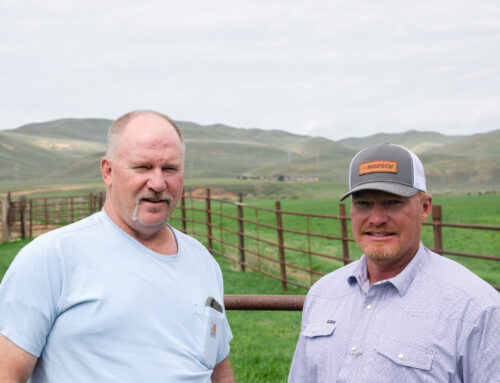Wetlands and Streams Face a New Threat from the Trump Administration
May 6, 2025
The Supreme Court’s 2023 decision in Sackett v. EPA significantly weakened the Clean Water Act (CWA) by stripping away federal protections for millions of acres of wetlands and streams. Now, the Environmental Protection Agency (EPA) under President Trump is pushing to further erode safeguards for these vital water bodies by narrowing the definition that determines which waters are protected. This not only threatens the wildlife, businesses, and people who depend on these waters, but also puts nearby communities at greater risk of flooding, water pollution, and water shortages—all to benefit corporate interests that prioritize profits over protecting these waterways.
Shortly after announcing the proposed changes to the government’s definition of “Waters of the United States” (WOTUS), the EPA and the Department of the Army opened a 30-day written comment period to gather feedback on the proposal. I submitted comments on behalf of the Union of Concerned Scientists (UCS) and our more than 500,000 supporters, which you can read here. We also joined our partners in the Clean Water for All coalition to submit a joint response.
Additionally, I delivered oral testimony at an EPA listening session, where UCS joined 45 local, state, regional, and national organizations urging the agency not to narrow the definition of WOTUS. Instead, we called on the EPA to preserve protections for as many wetlands and streams as possible following the Sackett decision. Here is my full testimony:
I’m Dr. Stacy Woods. I’m a geostatistician and environmental scientist, and I’m the research director for the Food and Environment Program at the Union of Concerned Scientists.
I’m here today to urge the EPA to include wetlands and other water bodies in the definition of “Waters of the United States” (WOTUS) to the fullest extent permitted following Sackett.
The Supreme Court ruling in Sackett removed federal protections from millions of acres of wetlands and streams across the country. In 2023, the definition of WOTUS was updated to bring it into alignment with the Sackett decision. Therefore, further narrowing the definition is not required.
It is not required, nor is it prudent. When wetlands lack federal protections, they are at risk of being damaged or destroyed by industries seeking to maximize their profits, regardless of the environmental costs.
Even before the Sackett decision, wetlands were losing ground in the United States. Between 2009 and 2019, over 650,000 acres of wetlands were lost in the US—that’s equal to the land size of Rhode Island.
Wetlands in this country are primarily destroyed by urban and suburban sprawl and by industrial agriculture operations. And while corporations may profit from draining wetlands to make way for unchecked development or endless rows of feed corn, communities pay a heavy price for this wetland loss.
For example, research by the Union of Concerned Scientists found that 30 million acres of wetlands in the Upper Midwest offer nearly $23 billion in residential flood protection each year—a benefit that is now threatened by the reduction in federal wetland protections.
But wetlands do more than soak up water and reduce flooding in nearby communities. Wetlands also provide substantial benefits to commercial fishing, water supply, water quality, carbon capture, and recreation, amounting to over $7.7 trillion per year, according to the US Fish and Wildlife Service.
Research shows that even wetlands that look isolated on a map are often still connected to other waters. Narrowing the definition of protected waters, connections, and ditches would mean ignoring how water moves across the landscape—and ignoring the scientific evidence that shows how wetland and stream pollution can harm rivers and lakes downstream.
The definition of WOTUS was already amended to align with the Sackett decision. Any further restrictions go beyond what is required and would threaten wetlands, streams, downstream rivers and lakes, and the communities that rely on these waters.
On behalf of the Union of Concerned Scientists and our more than 500,000 supporters—including many whose communities, livelihoods, and well-being are directly impacted by nearby wetlands and streams—we thank the EPA for this opportunity to provide comment on the definition of Waters of the United States.
The EPA and the Department of the Army have announced a public listening session to hear directly from people who depend on clean, safe wetlands and streams—that is, people like you! The session will take place on May 14, 2025, with both virtual and in-person participation options. A second listening session will also be announced soon. You must register in advance to give comments, and speaker slots fill up quickly. Click here to register to speak.
To help you prepare, UCS has created a guide with talking points you can use during your three-minute testimony. I also designed a story map that explains the history of wetlands in the United States, the benefits wetlands provide to all of us, and how you can take action to defend these vital water bodies.
Please use every opportunity to urge the federal government to protect the wetlands and streams that sustain our communities, economies, and the environment.
Search
RECENT PRESS RELEASES
Related Post



